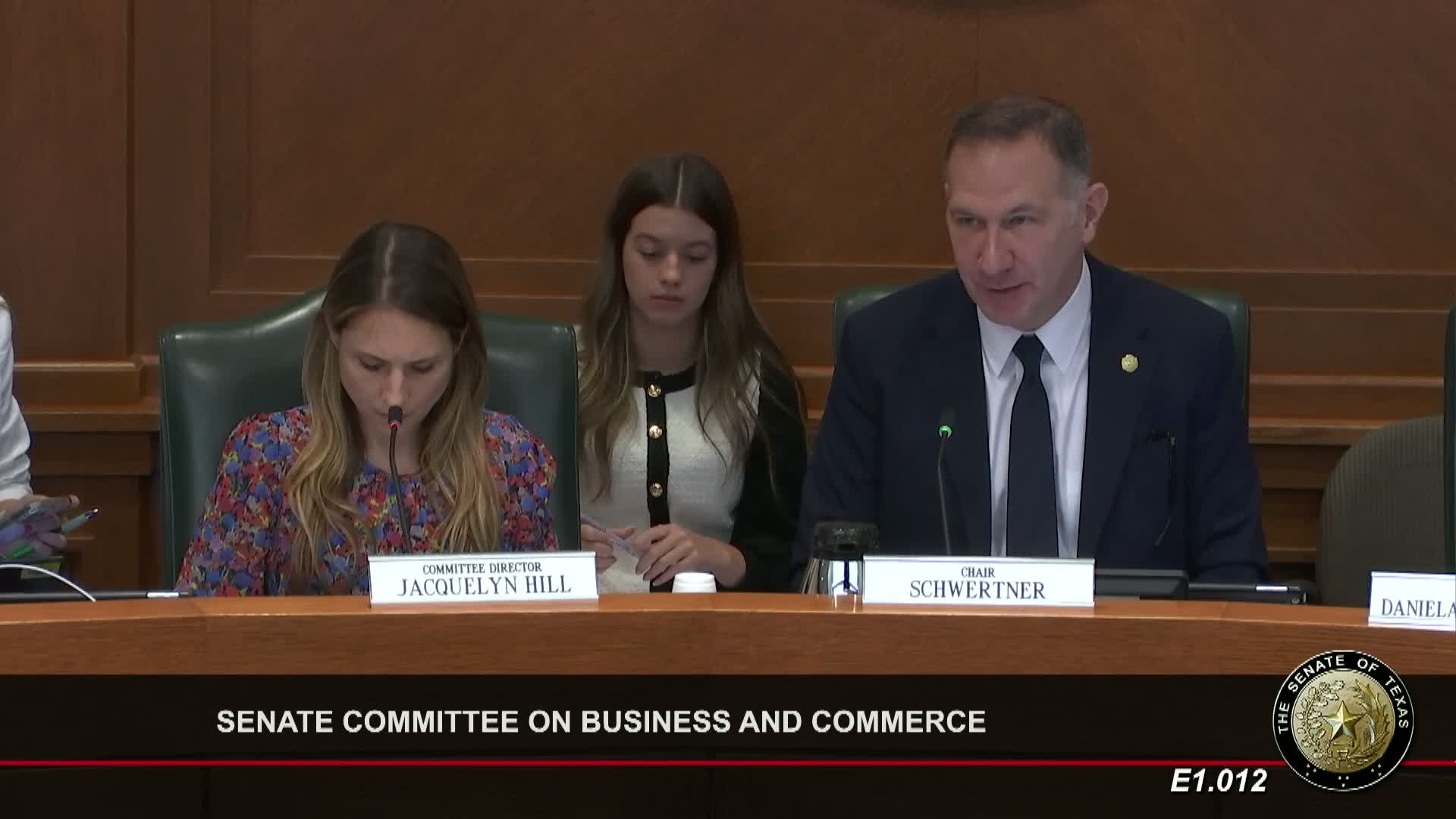Article not found
This article is no longer available. But don't worry—we've gathered other articles that discuss the same topic.
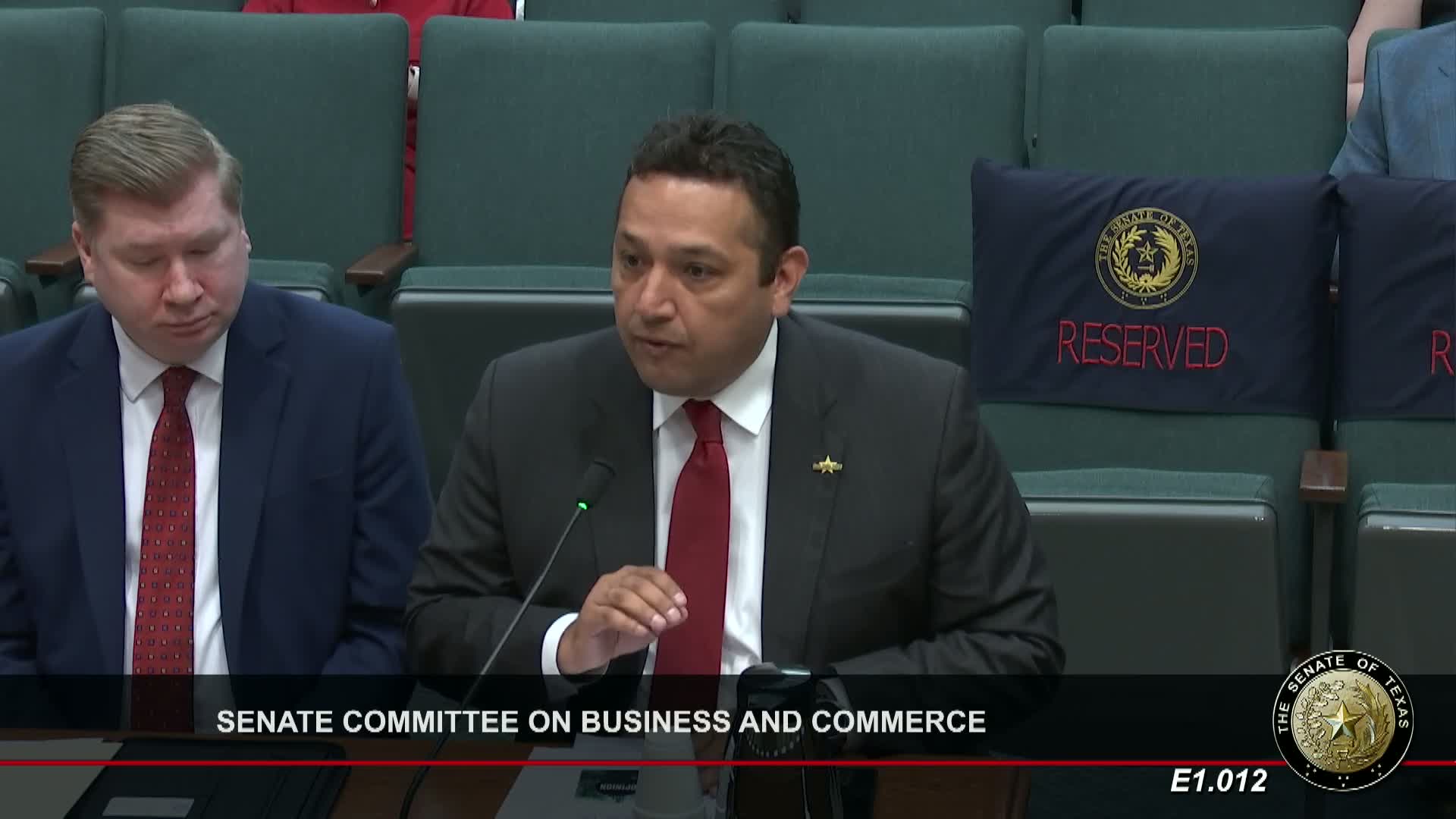
Senate bill would require universal E-Verify for employers and contractors; wide proponent testimony at committee hearing
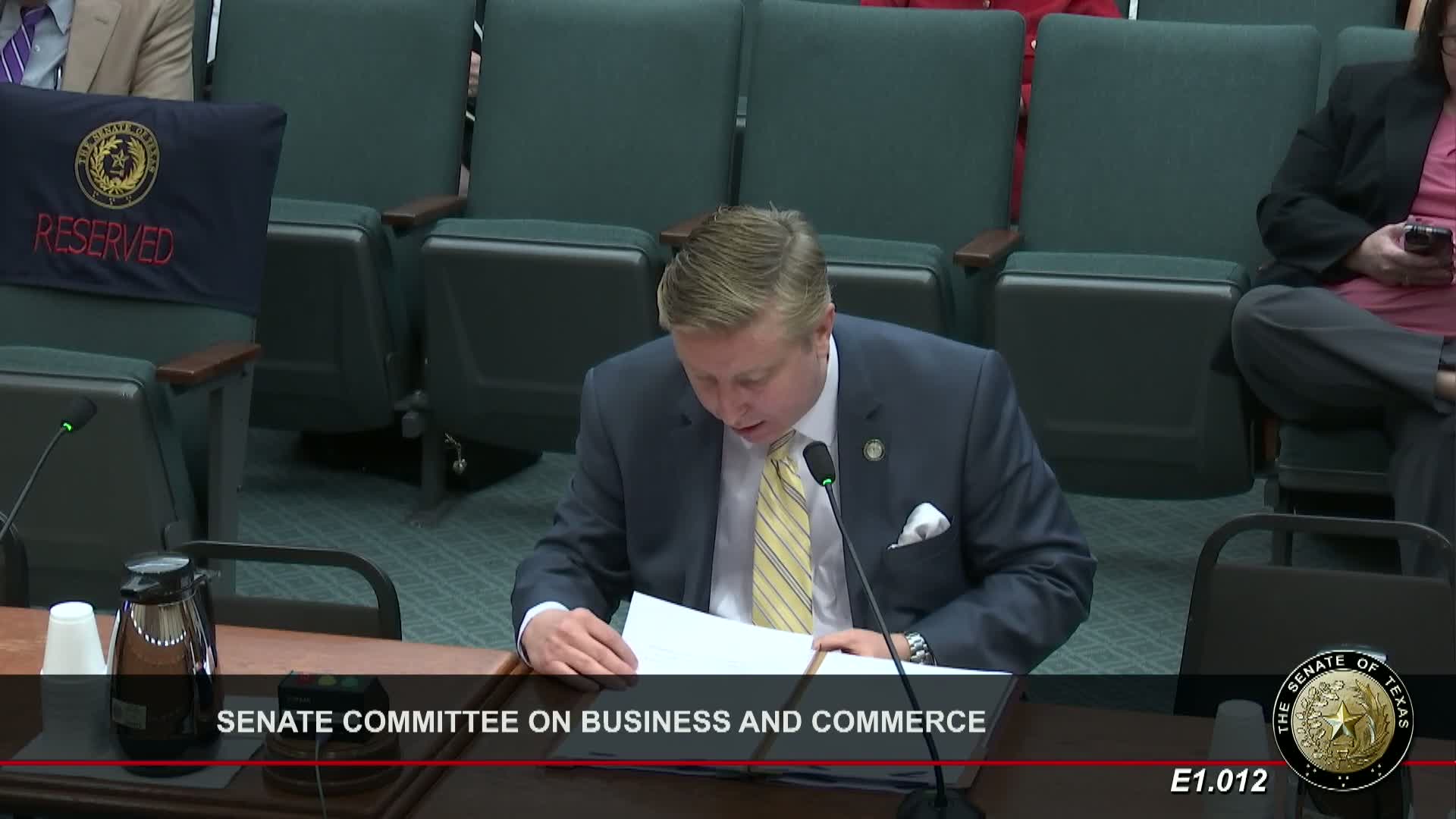
Bills to add enforcement to state preemption of local rules draw divided testimony; cities warn of punitive fiscal consequences
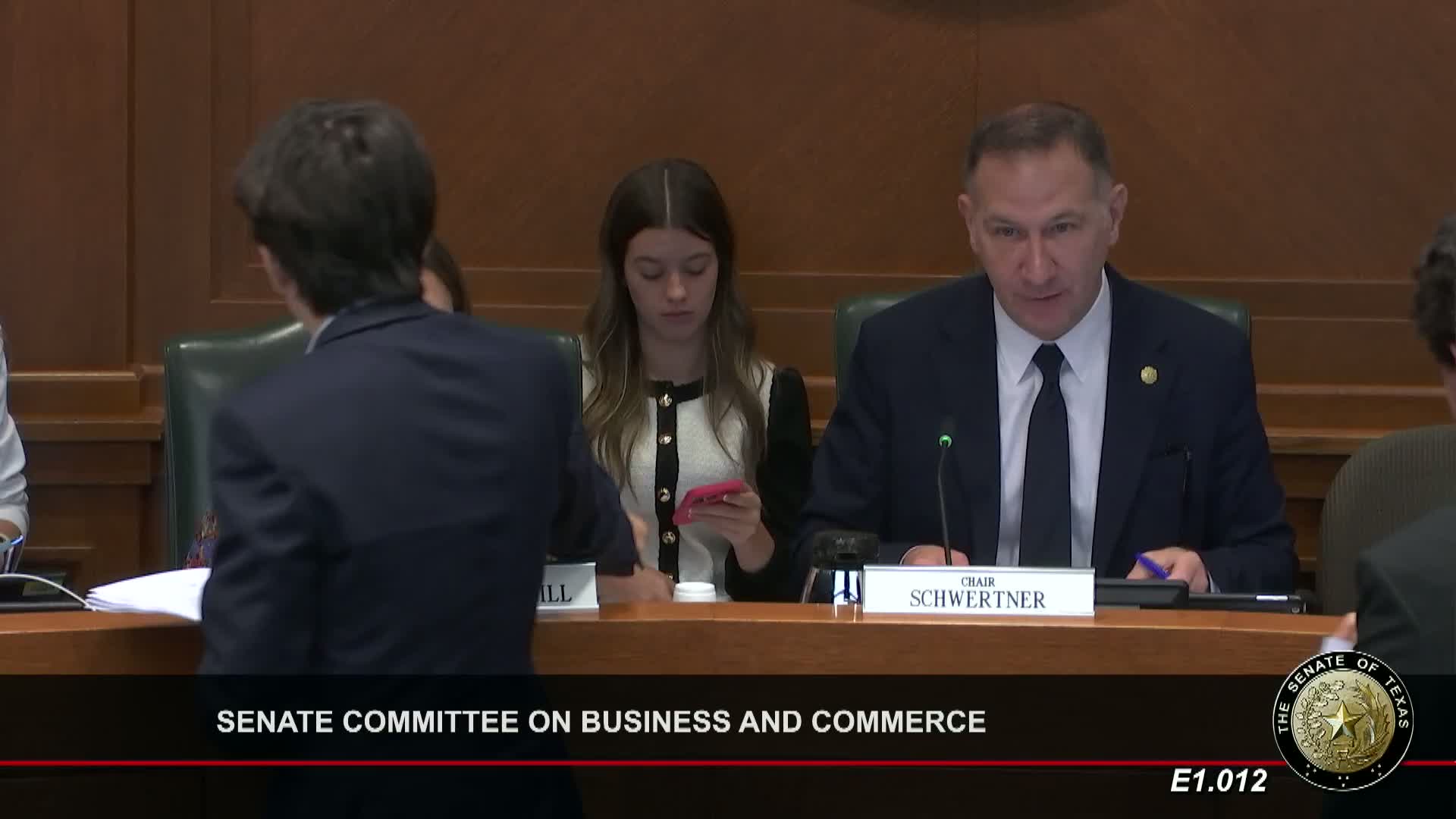
Bill aiming to block interconnections that could trigger FERC jurisdiction draws technical questions; committee substitute expected
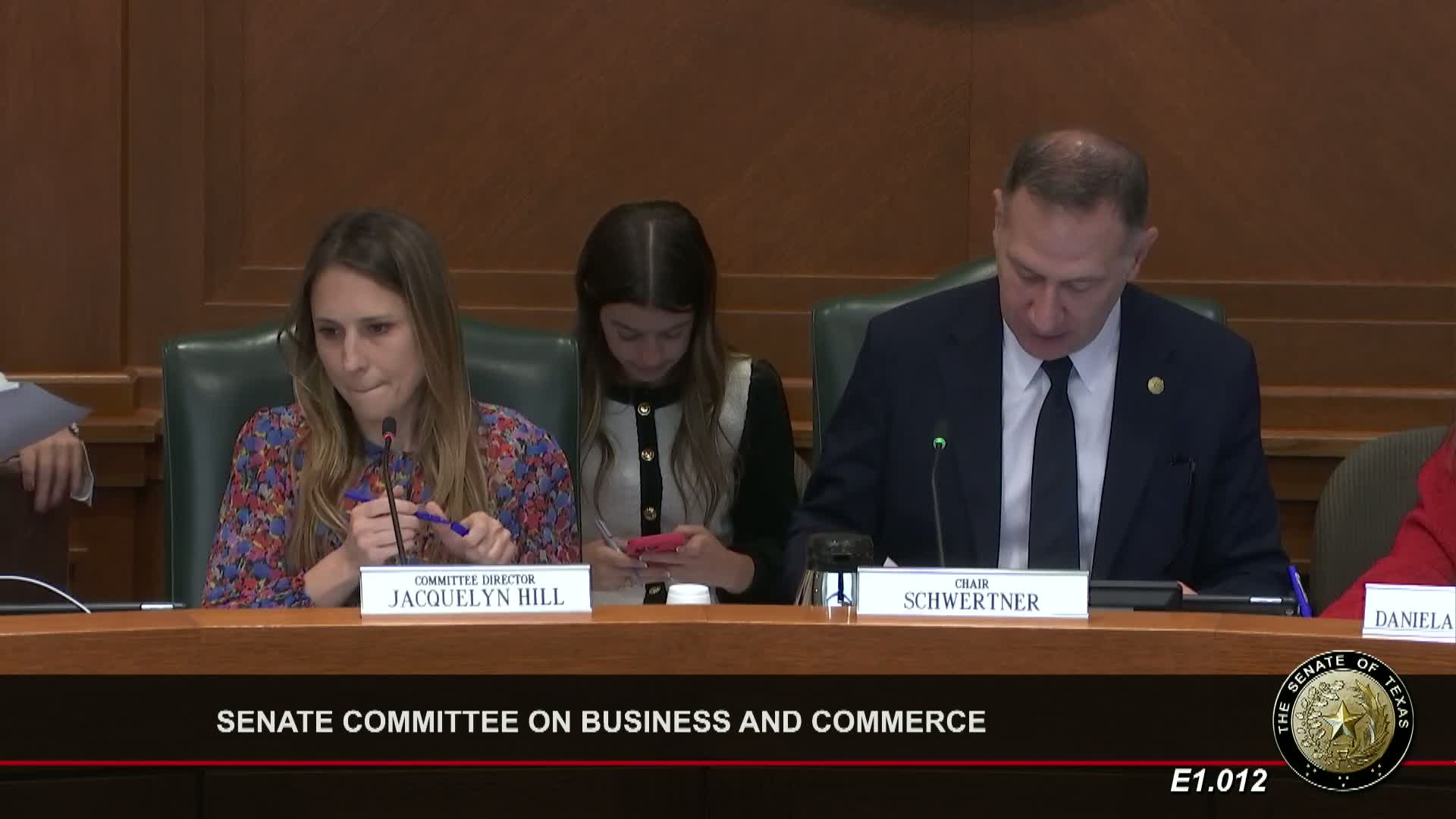
Committee hears bill to create cybersecurity "safe harbor" for small businesses; NFIB and SMBs testify, bill left pending
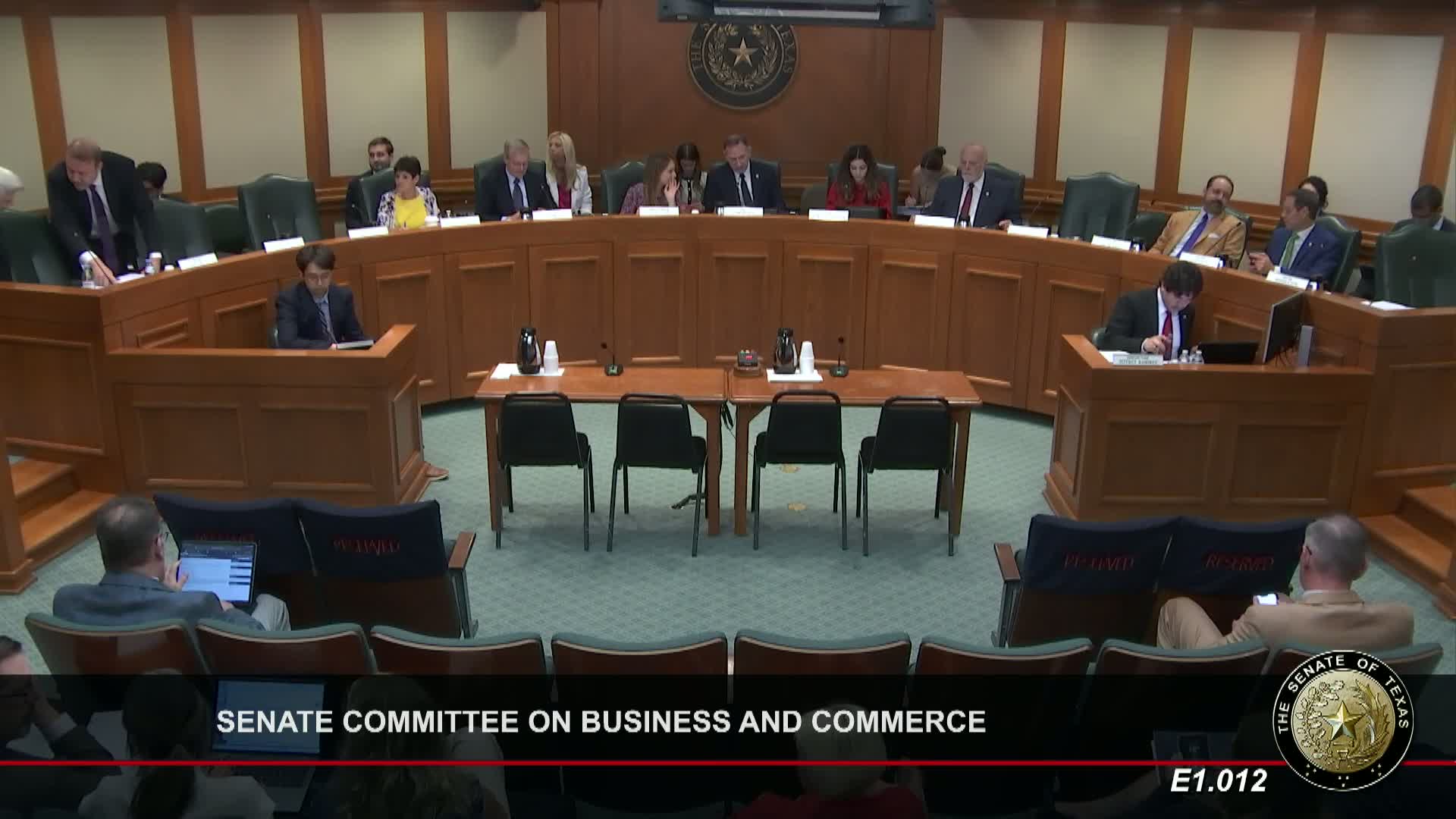
Committee substitute for bill on criminal-history background checks left pending after DPS requests additions
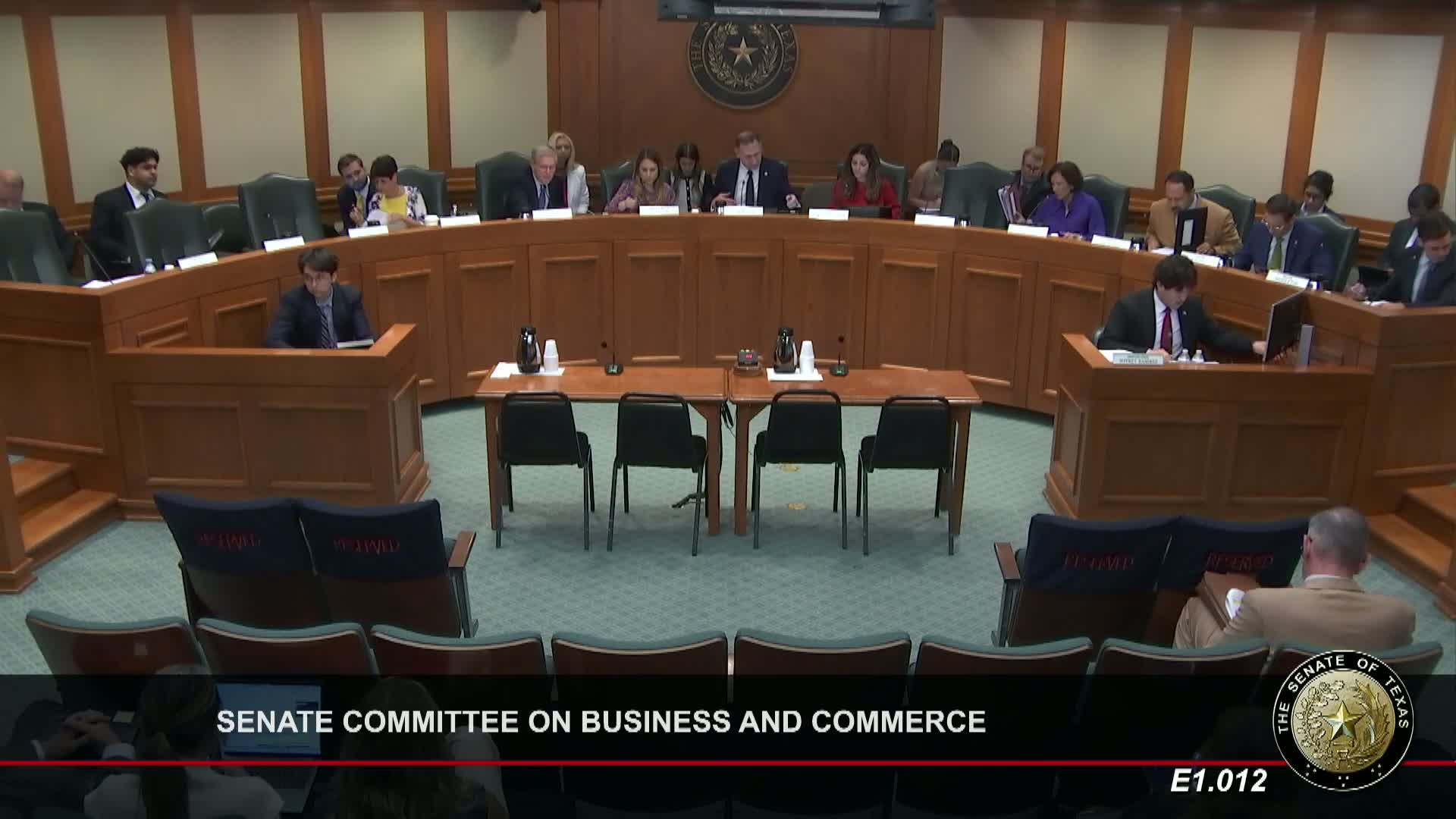
Senate committee hears bill to remove 1953 reversionary clause on Mineral Wells property; testimony closed, bill left pending
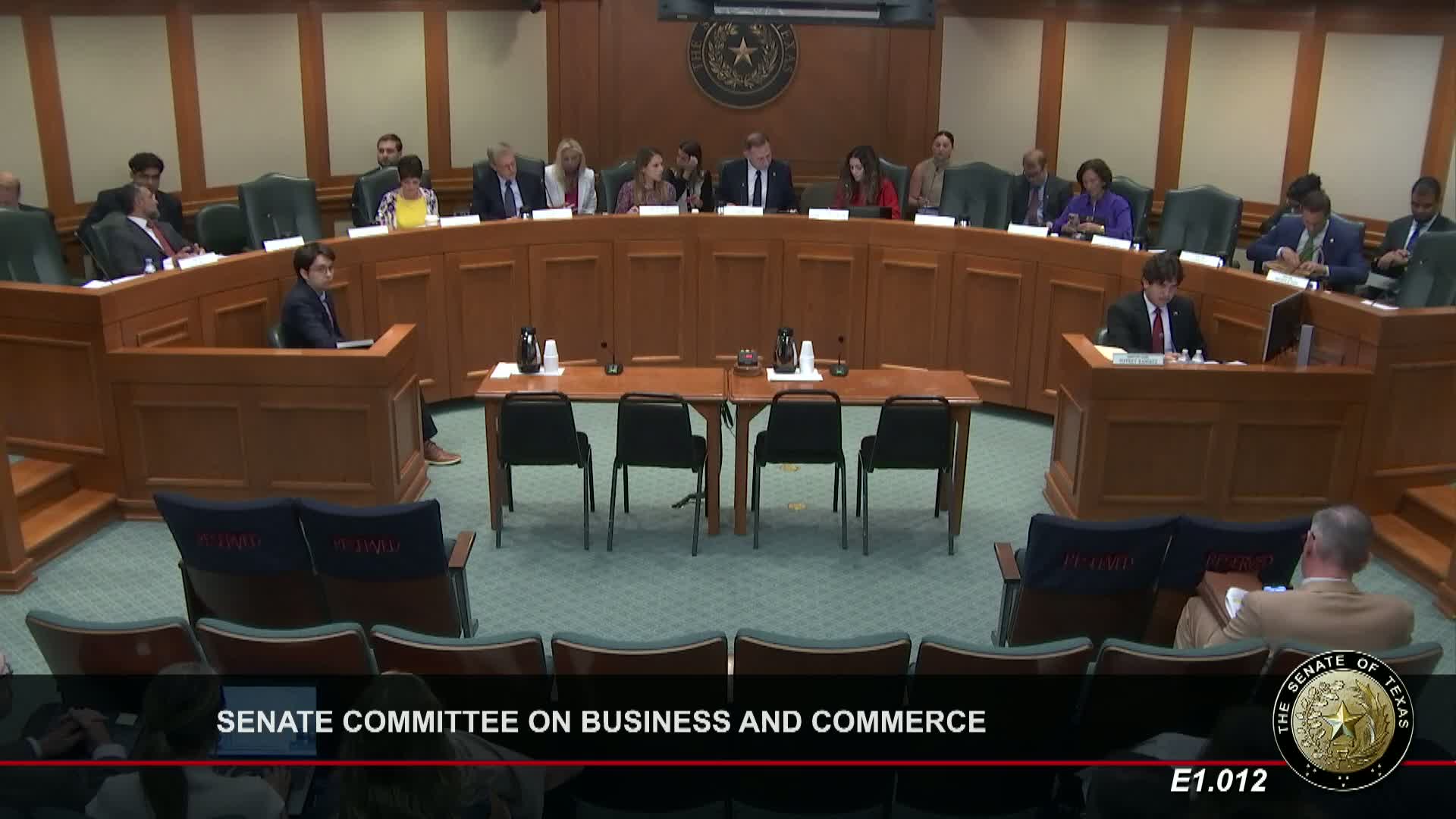
Committee reports several bills favorably; six measures sent to local/uncontested calendars
